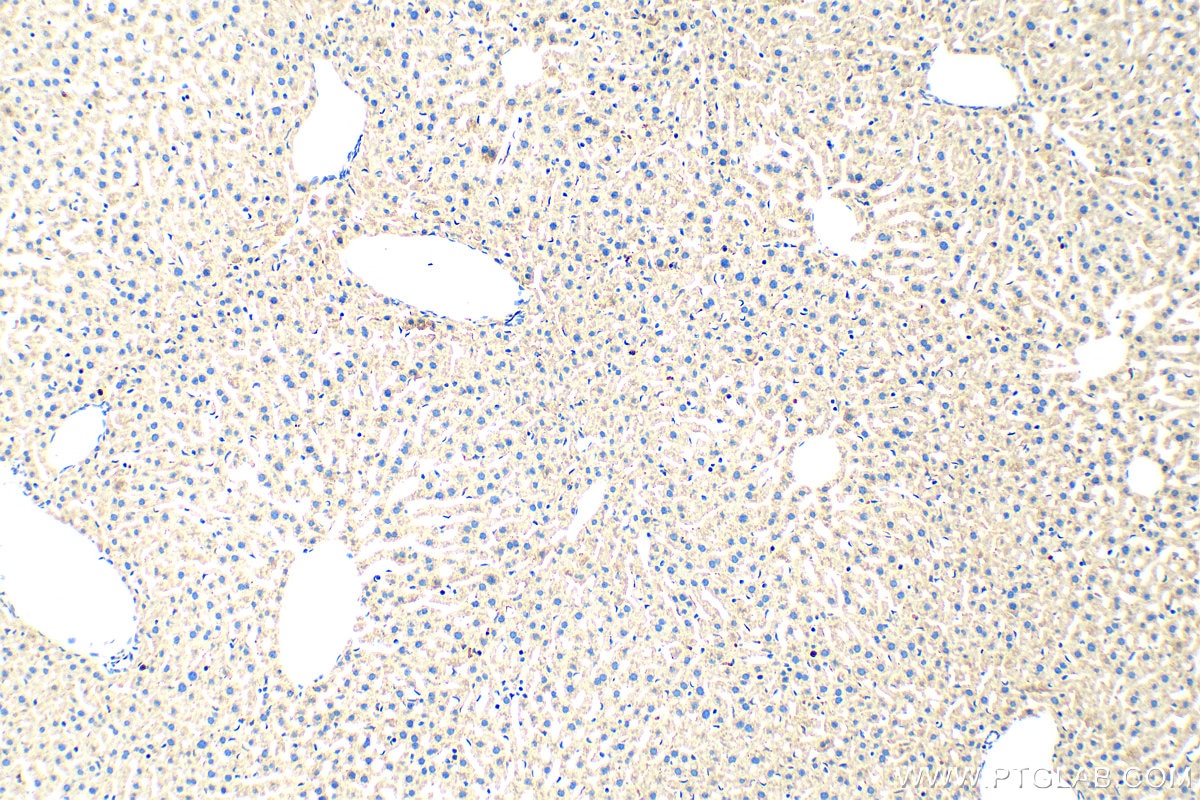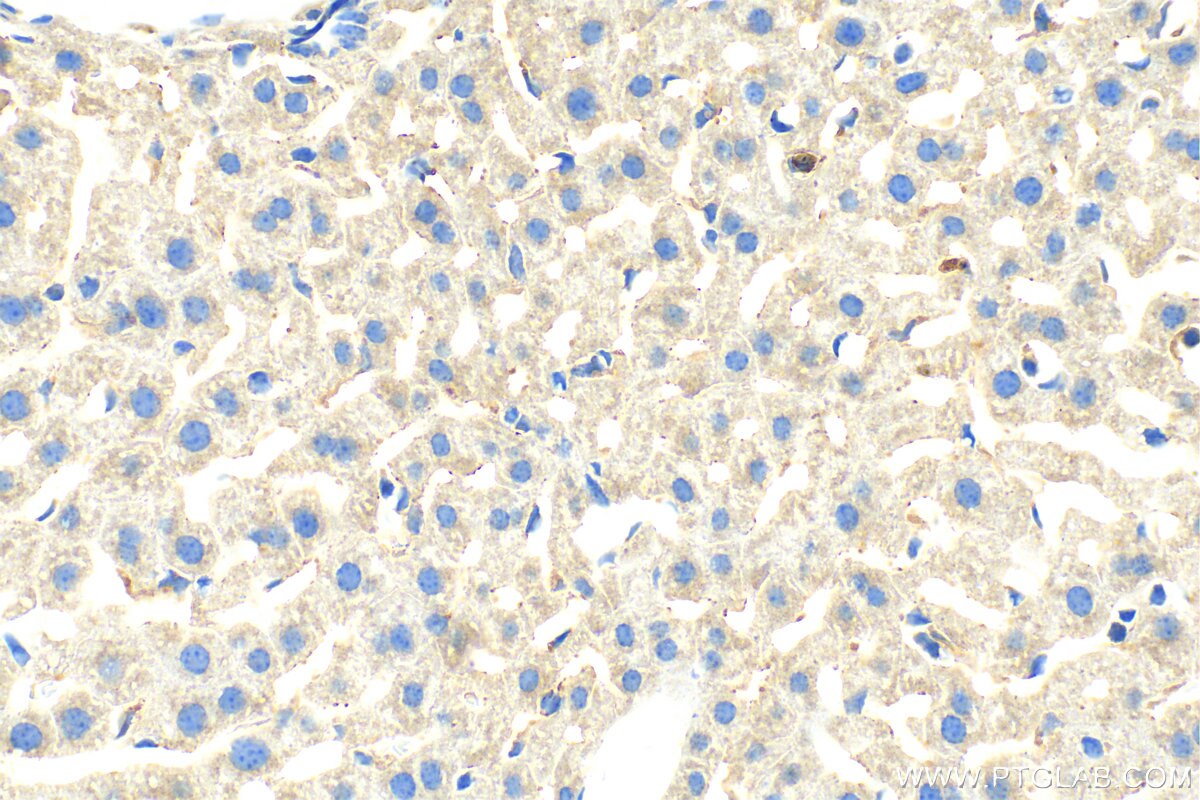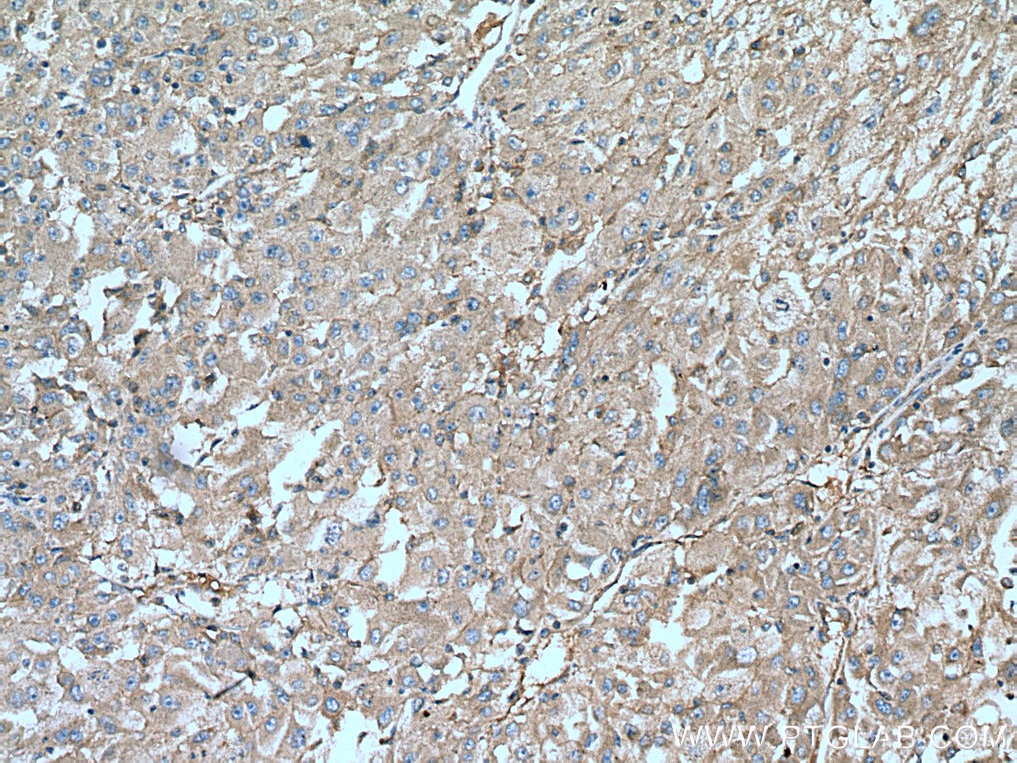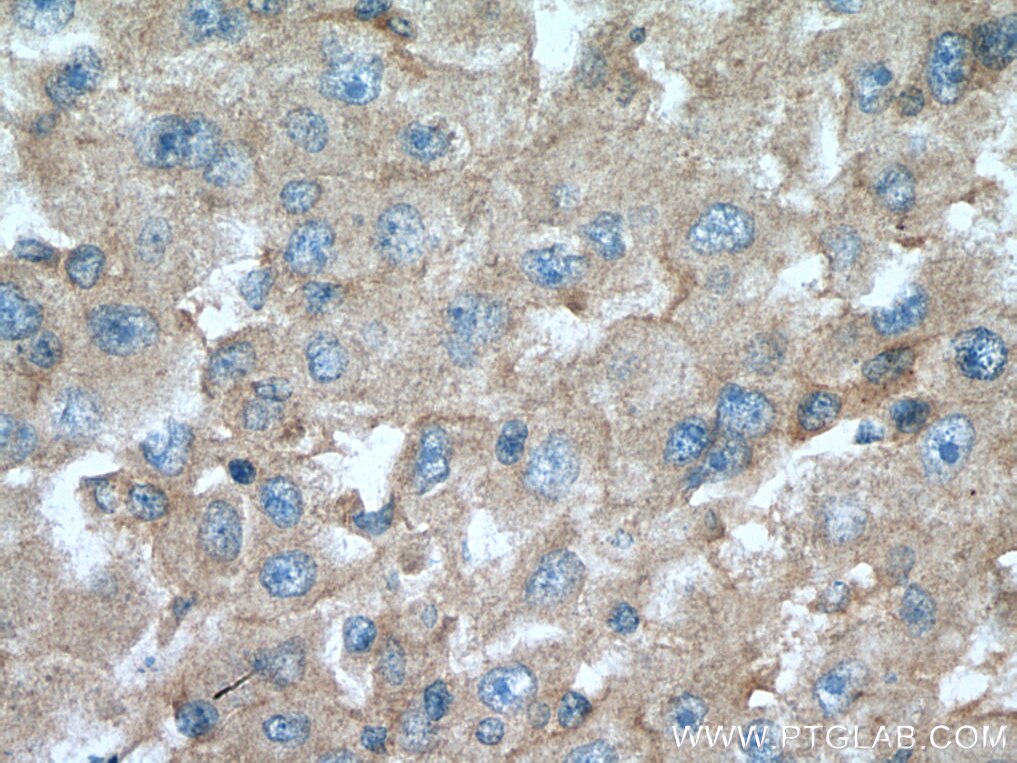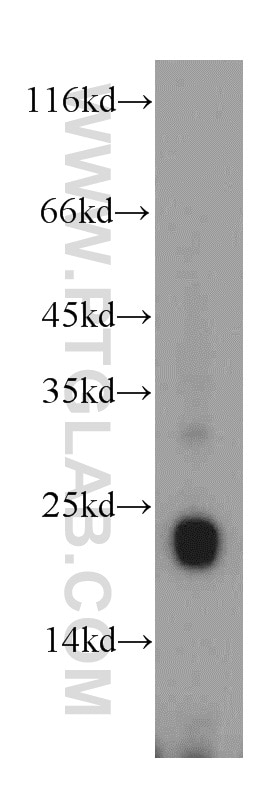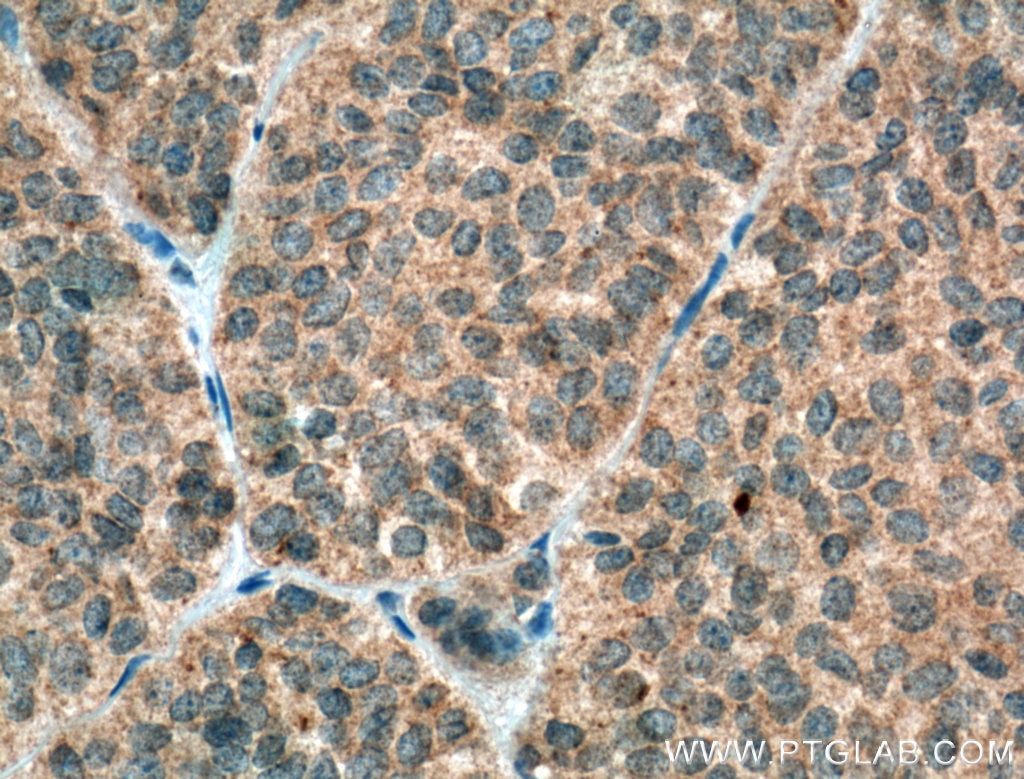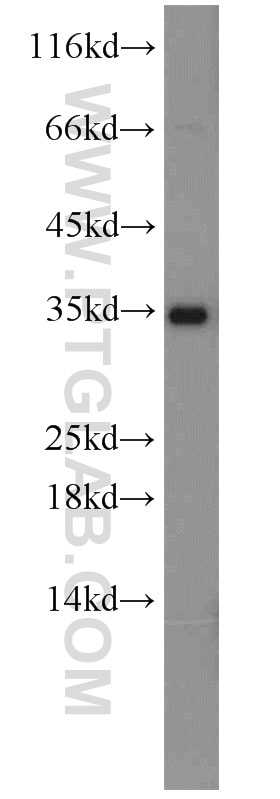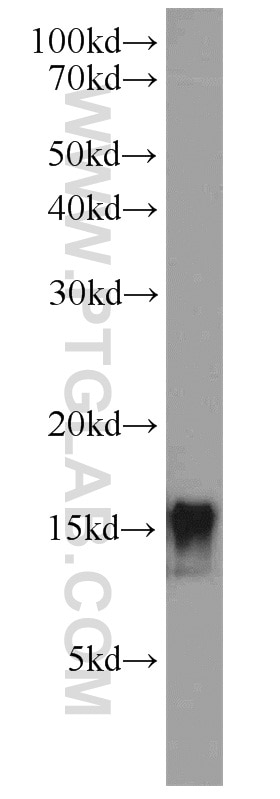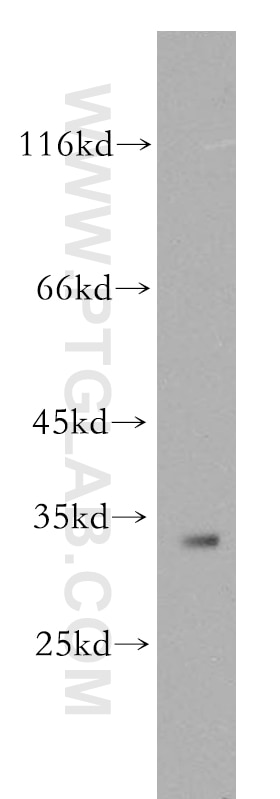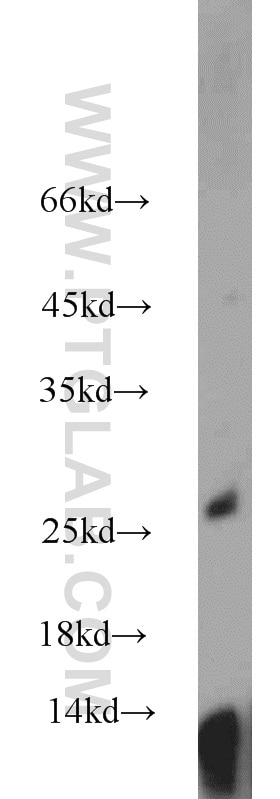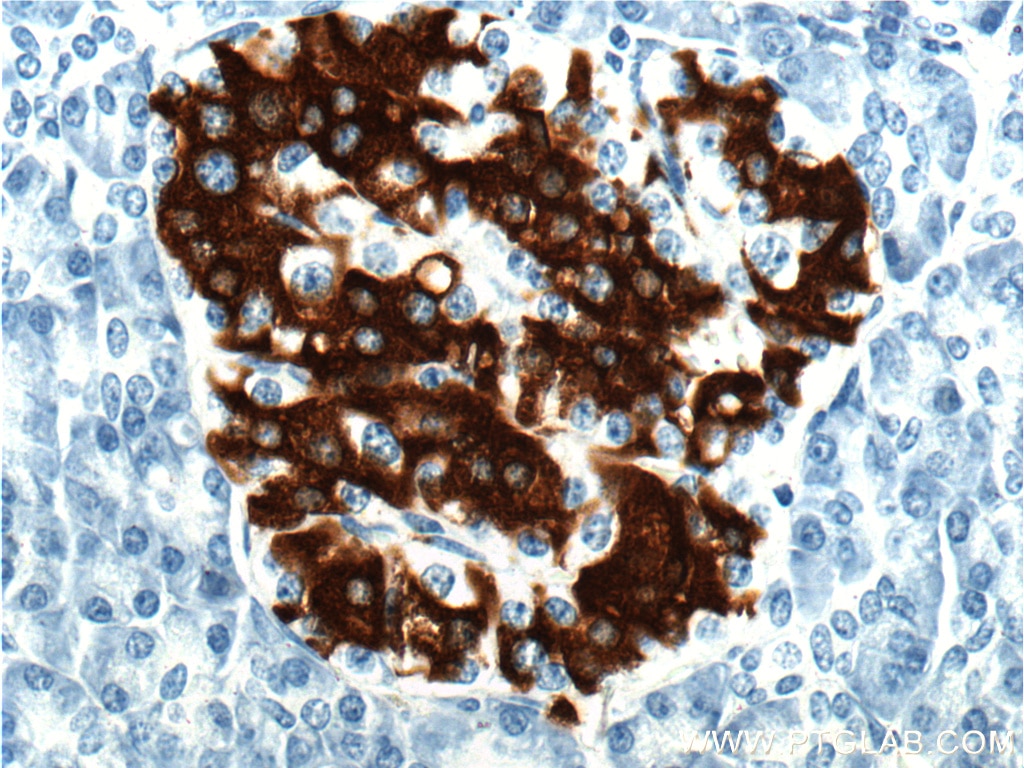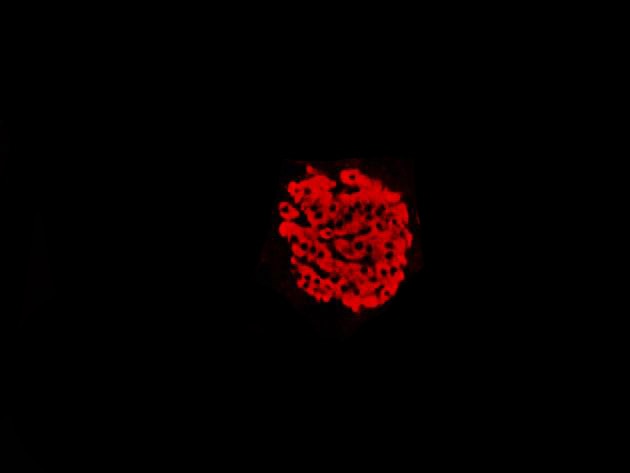- Phare
- Validé par KD/KO
Anticorps Polyclonal de lapin anti-IGF1A-Specific
IGF1A-Specific Polyclonal Antibody for IHC, ELISA
Hôte / Isotype
Lapin / IgG
Réactivité testée
Humain, souris et plus (2)
Applications
WB, IF, IHC, ELISA
Conjugaison
Non conjugué
N° de cat : 20214-1-AP
Synonymes
Galerie de données de validation
Applications testées
| Résultats positifs en IHC | tissu hépatique de souris, tissu de cancer du foie humain il est suggéré de démasquer l'antigène avec un tampon de TE buffer pH 9.0; (*) À défaut, 'le démasquage de l'antigène peut être 'effectué avec un tampon citrate pH 6,0. |
Dilution recommandée
| Application | Dilution |
|---|---|
| Immunohistochimie (IHC) | IHC : 1:300-1:1200 |
| It is recommended that this reagent should be titrated in each testing system to obtain optimal results. | |
| Sample-dependent, check data in validation data gallery | |
Applications publiées
| KD/KO | See 1 publications below |
| WB | See 16 publications below |
| IHC | See 4 publications below |
| IF | See 1 publications below |
Informations sur le produit
20214-1-AP cible IGF1A-Specific dans les applications de WB, IF, IHC, ELISA et montre une réactivité avec des échantillons Humain, souris
| Réactivité | Humain, souris |
| Réactivité citée | rat, Humain, porc, souris |
| Hôte / Isotype | Lapin / IgG |
| Clonalité | Polyclonal |
| Type | Anticorps |
| Immunogène | Peptide |
| Nom complet | insulin-like growth factor 1 (somatomedin C) |
| Masse moléculaire calculée | 17 kDa |
| Symbole du gène | IGF1 |
| Identification du gène (NCBI) | 3479 |
| Conjugaison | Non conjugué |
| Forme | Liquide |
| Méthode de purification | Purification par affinité contre l'antigène |
| Tampon de stockage | PBS avec azoture de sodium à 0,02 % et glycérol à 50 % pH 7,3 |
| Conditions de stockage | Stocker à -20°C. Stable pendant un an après l'expédition. L'aliquotage n'est pas nécessaire pour le stockage à -20oC Les 20ul contiennent 0,1% de BSA. |
Informations générales
IGF1, also named as IBP1, MGF, IGF-IA and Somatomedin-C, belongs to the INS family. IGF1 is structurally and functionally related to INS but have a much higher growth-promoting activity. Altered expression or mutation of IGF-1 is associated with several human disorders, including type I diabetes and various forms of cancer. Defects in IGF1 are the cause of INS-like growth factor I deficiency (IGF1 deficiency) which is an autosomal recessive disorder characterized by growth retardation, sensorineural deafness and mental retardation. The antibody is specific to isoform IGF-1A.
Protocole
| Product Specific Protocols | |
|---|---|
| IHC protocol for IGF1A-Specific antibody 20214-1-AP | Download protocol |
| Standard Protocols | |
|---|---|
| Click here to view our Standard Protocols |
Publications
| Species | Application | Title |
|---|---|---|
Gastroenterology Regulator of Calcineurin 1 Gene Isoform 4, Downregulated in Hepatocellular Carcinoma, Prevents Proliferation, Migration, and Invasive Activity of Cancer Cells and Growth of Orthotopic Tumors by Inhibiting Nuclear Translocation of NFAT1. | ||
J Hepatol Deficiency of insulin-like growth factor 1 attenuates aging-induced changes in hepatic function: Role of autophagy. | ||
Proc Natl Acad Sci U S A Disruption of the AMPK-TBC1D1 nexus increases lipogenic gene expression and causes obesity in mice via promoting IGF1 secretion. | ||
Int J Cancer Estrogen and insulin-like growth factor synergistically promote the development of lung adenocarcinoma in mice. | ||
Mol Neurobiol Intramuscular Delivery of scAAV9-hIGF1 Prolongs Survival in the hSOD1(G93A) ALS Mouse Model via Upregulation of D-Amino Acid Oxidase. | ||
Cancer Lett IFN-γ-mediated IRF1/miR-29b feedback loop suppresses colorectal cancer cell growth and metastasis by repressing IGF1. |
